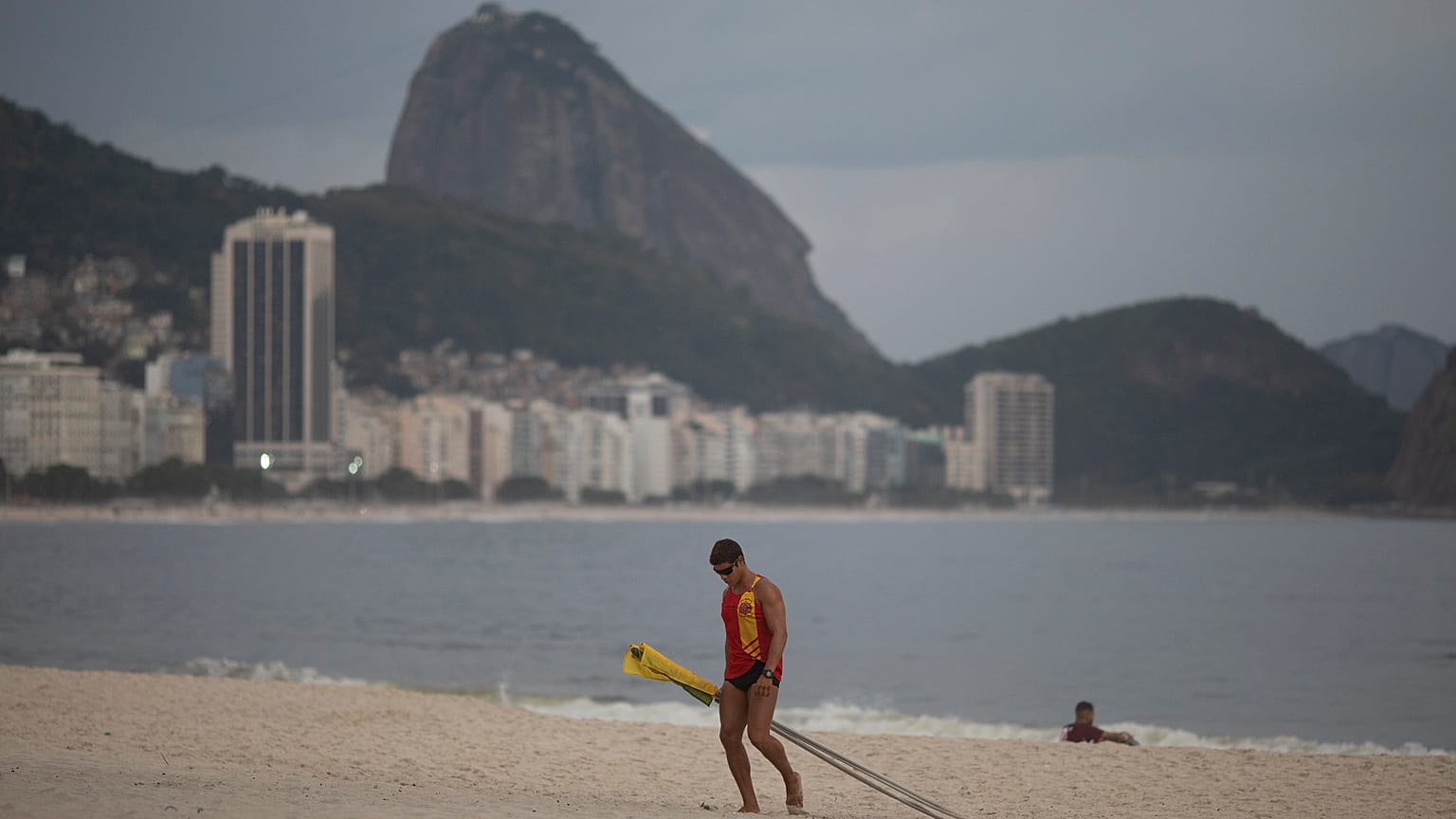Police are now patrolling Brazil's most famous beach after its many stalls were closed on Friday.
Rio de Janeiro has announced new restrictions on bars, restaurants and beaches, seeking to contain a surge of COVID-19 that is pushing Brazil's hospitals to the breaking point.
Its famous Copacabana beach has also grown quieter after its many stalls were closed on Friday and police stepped up patrols.
The city of 6.7 million people is the latest to go back on partial lockdown in Brazil, which has registered record COVID-19 death tolls the past two days and is having its deadliest week of the pandemic.
Far-right President Jair Bolsonaro continues to downplay the new coronavirus, leaving cities and states to implement a patchwork of containment measures on their own.
Rio's new decree orders bars and restaurants to close at 5:00 pm, shuts all commercial activity on the city's famed beaches, and bans night clubs, "samba circles" and other parties.
"All the measures we are announcing today have a single objective: to make sure 2021 is not a repeat of the genocide that happened in Rio de Janeiro in 2020," said Mayor Eduardo Paes on Thursday. He took office in January, ousting Bolsonaro ally Marcelo Crivella.
The decree also forbids people from lingering in public spaces from 11:00 pm to 5:00 am, though traffic will not be restricted.
Shops will be allowed to remain open until 8:00 pm, but, like bars and restaurants, must limit customers to 40% of capacity.















